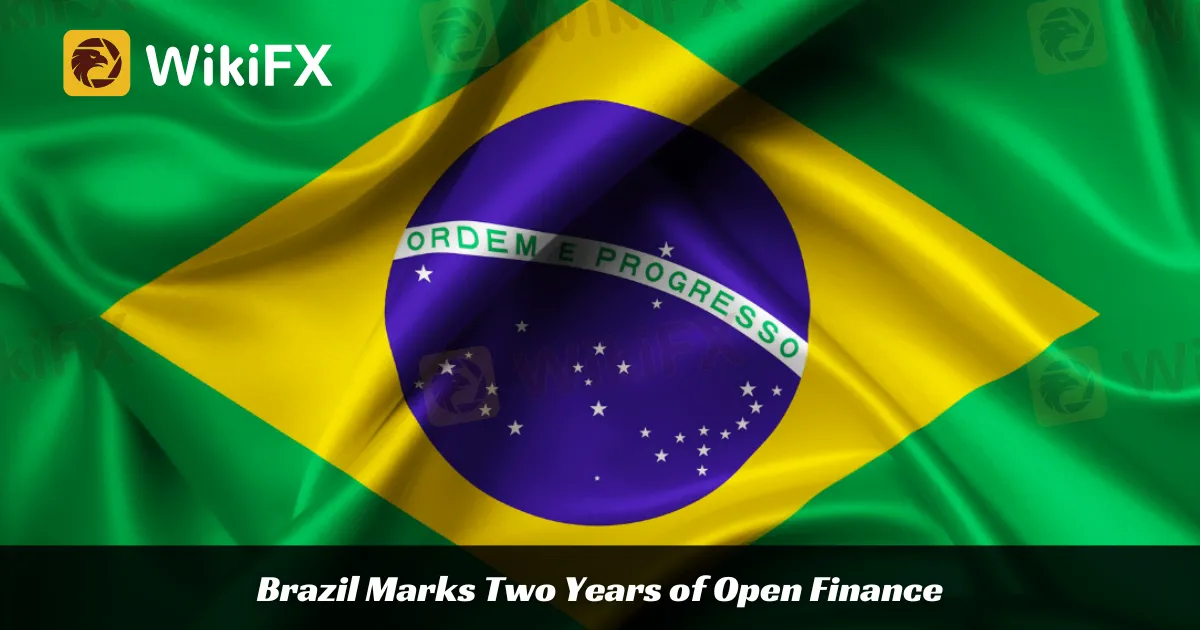简体中文
繁體中文
English
Pусский
日本語
ภาษาไทย
Tiếng Việt
Bahasa Indonesia
Español
हिन्दी
Filippiiniläinen
Français
Deutsch
Português
Türkçe
한국어
العربية
Brazil Marks Two Years of Open Finance
Abstract:Brazil began its Open Finance Initiative two years ago today. Because of this effort, open banking has flourished in Brazil, building a new governance structure and financial system for the country's financial institutions.

Brazil began its Open Finance Initiative two years ago today. Because of this effort, open banking has flourished in Brazil, building a new governance structure and financial system for the country's financial institutions.
The Open Finance Initiative acquired 17.3 million consents from users to share personal and banking data with financial institutions throughout this time period. The effort has also resulted in 10.8 billion successful financial ecosystem communications.
The system runs through APIs governed by the Brazilian Central Bank, allowing data sharing across organizations.
General manager of Ozone API in Latin America, Fabio Caldeira, commented on the success of the initiative: “For me, the essential point that allowed us to evolve so much in such a short time was the active role the regulator played in encouraging the market to collaborate in building what is today one of the most advanced Open Finance initiatives in the world. The establishment of a governance structure and the leadership style offered by the regulator were critical pillars in sustaining the progress that we have witnessed in recent years, particularly in contrast to nations that are already fairly established in this area, such as the United Kingdom.”
Speaking on the UK's open banking performance over its five years of existence, Helen Child, founder of Open Banking Excellence recently commented: “Brazil has reached five million connected accounts five times faster than the UK, Australia is already live with ”open energy and countries like Singapore and Saudi Arabia are delivering standards that will be regionally interoperable. The rivalry among UK open banking services is already fierce.
The Brazilian Central Bank has established a strong framework for various enterprises and sectors to communicate in a digital world, as well as opened up the Brazilian market to link with leading nations in the industry.
“The commitment of banks, via Febraban, has been important for the implementation of Open Finance in Brazil in record time and with a broader scope than that witnessed in other countries,” said Isaac Sidney, president of Frebraban (Brazil's Federation of Banks). At Febraban, we already have 12 separate working groups committed to developing the infrastructure.
In phase 4, the project will widen the scope of Brazil's open banking by including data from non-banking players.
Download link: https://www.wikifx.com/en/download.html?source=fma3

Disclaimer:
The views in this article only represent the author's personal views, and do not constitute investment advice on this platform. This platform does not guarantee the accuracy, completeness and timeliness of the information in the article, and will not be liable for any loss caused by the use of or reliance on the information in the article.
Read more

Webull Launches SMSF Investment Platform with Zero Fees
Webull introduces commission-free SMSF trading, offering over 3,500 US and Australian ETFs, with no brokerage fees and enhanced portfolio tools.

How Will the Market React at a Crucial Turning Point?
Safe-haven assets like gold and U.S. Treasuries are surging, while equities face mounting pressure. As this pivotal moment approaches, how will the market react?

Gold Prices Climb Again – Have Investors Seized the Opportunity?
Gold prices have hit record highs for three consecutive days, with a remarkable 19% gain in the first quarter, marking the strongest quarterly performance since 1986. As market risk aversion rises, demand for gold has surged significantly.

HTFX Spreads Joy During Eid Charity Event in Jakarta
On March 14, HTFX showcased its deep commitment to social responsibility by hosting a heartwarming Eid charity event in Jakarta, Indonesia. This meaningful gathering aimed to convey warmth and care through practical actions, uniting the local community and making a significant impact on those in need.
WikiFX Broker
Latest News
How Crypto Trading Transforms FX and CFD Brokerage Industry
FCA Warns Against 10 Unlicensed or Clone Firms
CySEC Warns Against 14 Unlicensed Investment Websites
Top Currency Pairs to Watch for Profit This Week - March 31, 2025
Will natural disasters have an impact on the forex market?
Philippines Deports 29 Indonesians Linked to Online Scam Syndicate in Manila
Exposing the Top 5 Scam Brokers of March 2025: A Closer Look by WikiFX
Gold Prices Climb Again – Have Investors Seized the Opportunity?
Australian Regulator Warns of Money Laundering and Fraud Risks in Crypto ATMs
Webull Launches SMSF Investment Platform with Zero Fees
Currency Calculator







